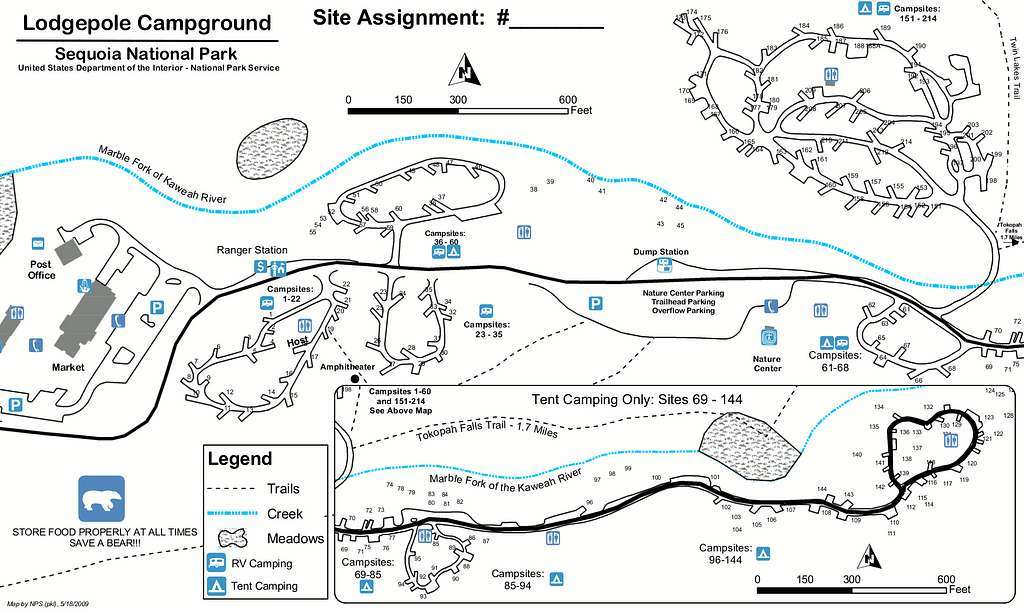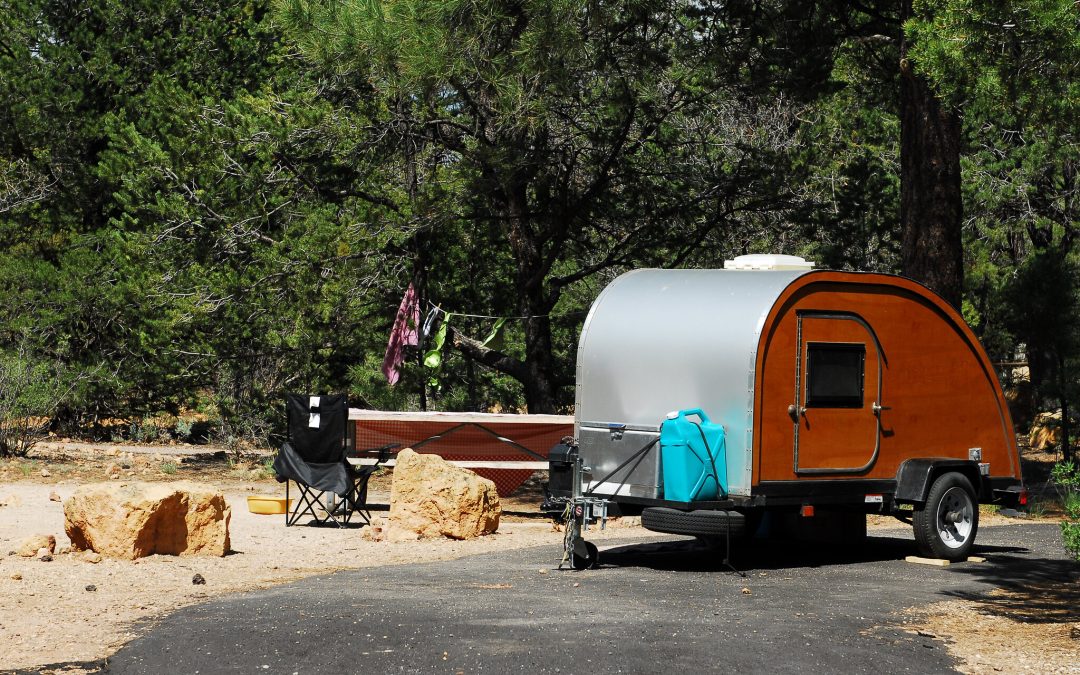If you’re an avid camper or traveler, you may have heard about the growing trend of RV camping. RV camping involves traveling in a recreational vehicle or motorhome that serves as both transportation and living quarters. It’s a great way to explore the outdoors while still enjoying the comforts of home. In this guide, we’ll provide a comprehensive overview of the steps you should take to plan your first RV camping trip.
Why RV Camping is a Great Way to Travel
RV camping is an excellent way to experience the great outdoors. Unlike traditional camping, RV camping provides a comfortable and convenient way to explore different regions and attractions. You have the freedom to travel at your own pace, and you can easily move from one campsite to the next without having to pack up and unpack your gear each time.
Importance of Planning Your First RV Camping Trip
Planning is essential to ensure a successful and enjoyable RV camping trip. There are many factors to consider, including choosing the right RV, finding the perfect campsite, planning your route, packing for your trip, setting up camp, and enjoying the great outdoors. With proper planning, you can avoid common mistakes and make the most of your RV camping experience.
Step 1: Choosing Your RV
Choosing the right RV is essential to a successful RV camping trip. There are several types of RVs available, including motorhomes, travel trailers, and fifth wheels. Each type has its own unique features and advantages, and you should choose the one that best suits your needs and preferences. Factors to consider when choosing an RV include size, weight, towing capacity, and amenities. You should also decide whether to rent or buy an RV, based on your budget and long-term plans.

Step 2: Finding the Perfect Campsite
Choosing the right campsite is critical to a successful RV camping trip. There are many different types of campsites available, ranging from national parks and state parks to private campgrounds and RV resorts. Each campsite has its own unique amenities, such as electricity, water, and sewer hookups, as well as recreational activities and attractions. You should research different campsite options and choose one that fits your preferences and needs.
Step 3: Planning Your Route
Planning your RV route is essential to a successful trip. Factors to consider when planning your route include distance, travel time, fuel costs, and traffic. You should also research mapping tools and resources, such as GPS navigation systems and online trip planners, to help you plan your route. It’s also essential to plan for stops and detours along the way, to explore attractions and activities along your route.
Step 4: Packing for Your Trip
Packing for your RV camping trip requires careful planning and organization. You should pack essential RV camping gear and supplies, such as bedding, kitchen utensils, and toiletries, as well as outdoor gear, such as hiking boots and fishing rods. You should also pack efficiently, using storage containers and space-saving techniques to make the most of the limited storage space in an RV. Finally, you should plan your meals and food supplies for your trip, taking into account storage space, refrigeration, and cooking facilities.
Step 5: Setting Up Camp
Setting up camp is an essential part of your RV camping trip. You should have a clear understanding of how to set up your RV at the campsite, including hooking up utilities, such as water and electricity, and managing waste, such as sewage and trash. You should also follow safety tips for setting up camp, such as using wheel chocks and leveling jacks, and ensuring that your RV is properly secured.
Step 6: Enjoying the Great Outdoors
One of the best things about RV camping is the opportunity to explore the great outdoors. There are many fun outdoor activities you can enjoy while RV camping, such as hiking, biking, fishing, and kayaking. You can also explore the area around your campsite, by visiting nearby attractions and landmarks, such as national parks, historic sites, and scenic vistas. Finally, it’s essential to make the most of your RV camping experience, by relaxing, socializing with other campers, and enjoying the beauty of nature.
Resources
- Go RVing – https://www.gorving.com/ A comprehensive resource for RV enthusiasts, Go RVing provides information on RV types, trip planning, campgrounds, and useful tips for first-time RV campers.
- KOA Blog: RV Camping for Beginners – https://koa.com/blog/rv-camping-for-beginners/ Kampgrounds of America (KOA) offers a range of informative articles about camping, including this beginner’s guide to RV camping, covering essential tips, recommendations, and insights.
- Recreation.gov – https://www.recreation.gov/ The official online portal for discovering and reserving campsites in the United States, Recreation.gov is an authoritative and reliable source for finding campgrounds, making reservations, and obtaining information about campsite amenities and regulations.
- Good Sam – https://www.goodsam.com/ A popular membership club for RV enthusiasts, Good Sam offers discounts on campgrounds, fuel, and other RV-related services. Their website provides valuable resources such as campground reviews, trip planning tools, and a blog with helpful articles and tips for RV camping.
- RV Travel – https://www.rvtravel.com/ An online magazine and community for RV enthusiasts, RV Travel features informative articles, tips, and advice on RV camping, maintenance, and travel, making it an authoritative and trustworthy resource for various aspects of RV camping.
FAQs
- What is the best time of year for RV camping? The best time of year for RV camping depends on your location and preferences. Generally, the peak season for RV camping is during the summer months, from June to August. However, spring and fall can be great times to RV camp, as the weather is milder and the crowds are thinner.
- Do I need a special license to drive an RV? The requirements for an RV license vary by state and by the size and weight of the RV. In most states, you do not need a special license to drive an RV if it weighs less than 26,000 pounds. However, if your RV is larger or heavier than this, you may need a commercial driver’s license or a special endorsement on your regular driver’s license.
- How much does it cost to rent an RV? The cost of renting an RV depends on several factors, including the type and size of the RV, the rental company, and the location and time of year. On average, you can expect to pay between $75 and $250 per night to rent an RV, with additional fees for mileage, insurance, and other services.
- What amenities are typically included at an RV campsite? The amenities at an RV campsite can vary, but most sites offer basic utilities, such as water, electricity, and sewage hookups. Some sites also offer additional amenities, such as Wi-Fi, cable TV, swimming pools, and recreational facilities.
- Can I bring my pets on an RV camping trip? Yes, many RV campsites are pet-friendly and allow pets on their grounds. However, you should check with the campsite in advance to ensure that they allow pets and to find out about any restrictions or fees.
- How do I find RV-friendly gas stations? There are several online resources and apps that can help you find RV-friendly gas stations, such as GasBuddy, RV Trip Wizard, and Pilot Flying J. These resources can help you locate gas stations with large, easy-to-access fuel pumps and plenty of space for maneuvering your RV.
- What should I pack for my first RV camping trip? Packing for your first RV camping trip can be a challenge, as you have limited storage space and need to bring everything you need for an extended trip. Some essential items to pack include bedding, kitchen supplies, toiletries, and outdoor gear. You should also plan your meals and food supplies, and bring plenty of water and snacks for the road.
- How do I plan my RV camping trip route? Planning your RV camping trip route requires careful research and planning. You should consider factors such as distance, travel time, fuel costs, and traffic, and use mapping tools and resources to help you plan your route. It’s also essential to plan for stops and detours along the way, to explore local attractions and activities.
- Are there any RV camping etiquette rules I should know? Yes, there are several RV camping etiquette rules that you should follow to ensure a pleasant and enjoyable experience for everyone. Some of these rules include respecting quiet hours, keeping your campsite clean and tidy, and following campground rules and regulations.
- How do I maintain my RV during a long trip? Maintaining your RV during a long trip
Takeaway
Planning your first RV camping trip can be a bit intimidating, but with a little preparation, it can be a great experience. Choosing the right RV, selecting the right campground, and packing the essentials are all important steps in the planning process. Staying safe on the road and setting up your campsite are also important considerations. With these tips in mind, you will be ready to hit the road and start your RV camping adventure.

